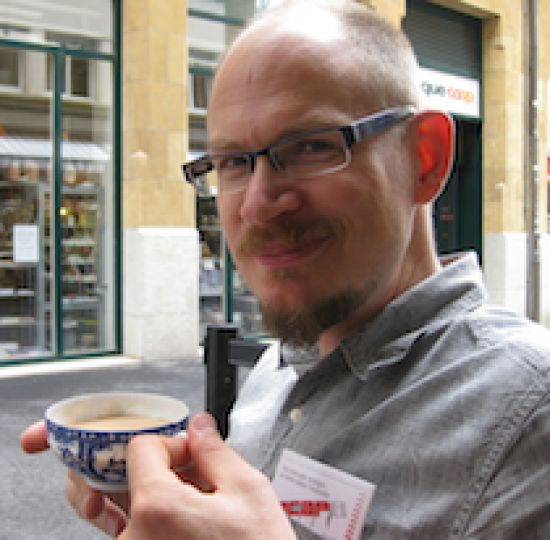The Berkeley Digital Humanities Working Group and Computing and the Practice of History will be co-hosting Ted Underwood on February 12th for two special events at the D-Lab. Trained as a Romanticist, Ted teaches 18th and 19th century British literature at the University of Illinois, Urbana-Champaign. His research combines information science and literary criticism by applying machine learning algorithms to large digital collections. Some of his collaborative work is presented at The Uses of Scale in Literary Study. His current project applies classification algorithms to enrich page-level metadata about genre in a collection of a million volumes.
Quantitative Social Sciences for the Humanities: How Much Does "the Digital" Matter for Distant Reading?
Thursday February 12, 12:15-1:30PM | D-Lab Convening Room 356
Brownbag talk & Discussion | Please register here
The concept of digital humanities is so loosely defined that at the moment it tends to absorb a number of other debates. In literary studies, for instance, the projects of surface reading and especially distant reading are often conflated with "DH," although computers play only a supporting role in much of this scholarship.
I want to consider this alignment of trends from two angles — acknowledging that it's partly an accident of public perception, but also trying to tease out a more substantive underlying rationale for it. Using a couple of examples from my own recent collaborations, I'll emphasize a curiously indirect but important way computers are contributing to the humanities right now: by making the quantitative social sciences more useful for humanists.
Digital Methods + Your Research: The Possibilities and Challenges of (Your) Digital Humanities Projects
Thursday February 12, 11AM-12PM | D-Lab Convening Room 356
Workshop | Please register here
How do we actually go about fitting new digital methods into a literary article? Can we take our existing questions about literary history and just "add some digital tools to them"? Or do we really have to back up and change the way we're framing our questions -- in order to consider, for instance, a larger archive? If so, how realistic is that -- especially for, say, grad students who can't spend a decade preparing to write their first article?
In preparation for the discussion, please read the following short articles on digital methods using the case study of literary studies.
Cents and Sensibility
Theorizing Research Practices We Forgot to Theorize Twenty Years Ago
